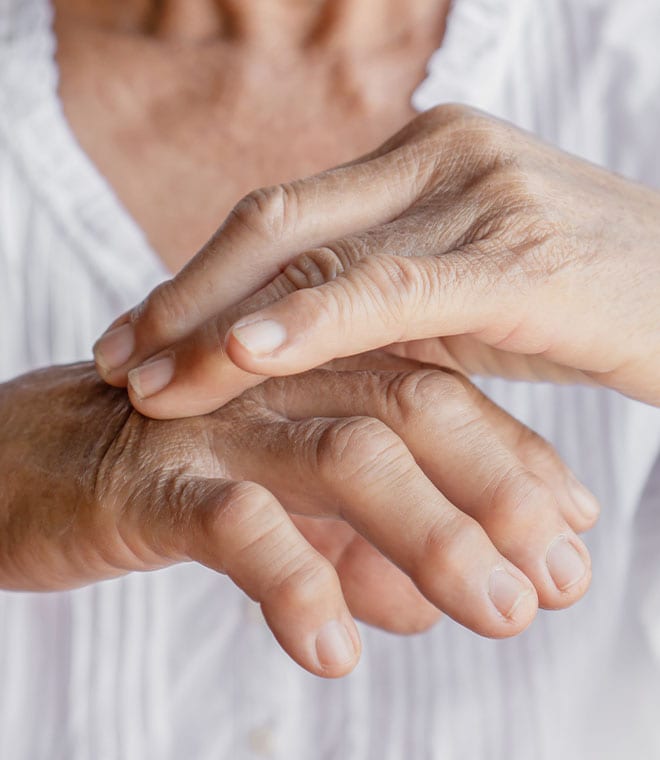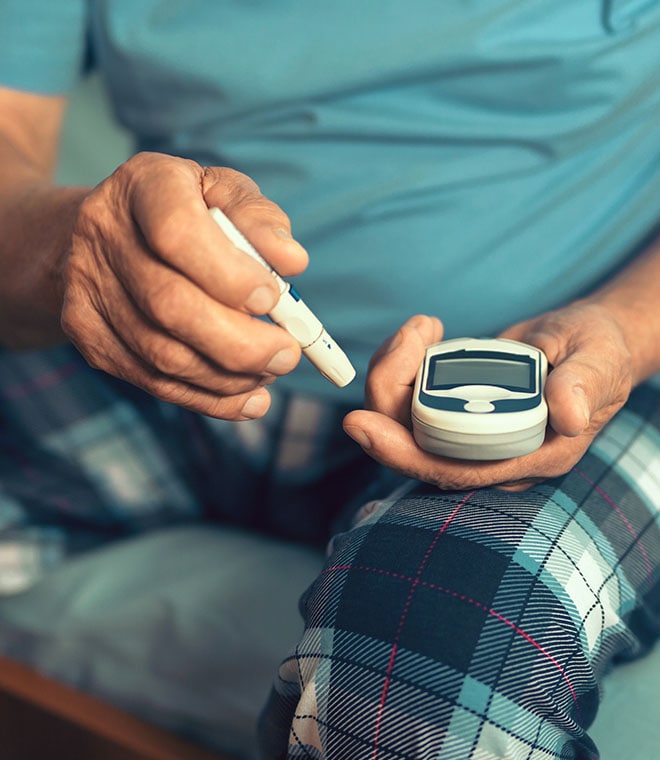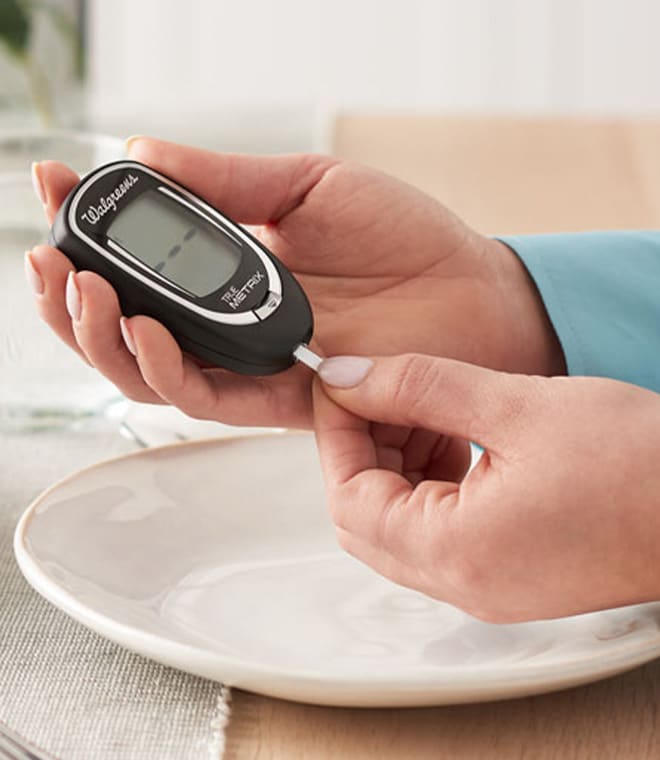Health
What is diabetes?
By Michelle Katz, MS, RD, Certified diabetes care and education specialist Aug 16, 2024 • 5 min
More than 38 million people in the U.S. have diabetes. Another 97 million have prediabetes and are at risk for developing the condition. Diabetes is a disease that occurs when blood sugar (blood glucose) levels rise above the normal range. However, there are different types of diabetes.
What is type 1 diabetes?
An autoimmune disease, type 1 diabetes occurs when the immune system mistakes beta cells in the pancreas for threats and destroys them to protect the body. As a result, the pancreas can’t make enough of the hormone insulin, or it stops producing insulin entirely. Without an adequate supply of insulin, blood sugar levels rise.
Some people refer to type 1 diabetes as childhood or juvenile diabetes because it often develops during childhood and adolescence. However, the disease can start in adulthood as well. Medical research has yet to determine exactly what causes type 1 diabetes; however, there does seem to be a genetic component since the condition often runs in families.
What is type 2 diabetes?
The most common type of diabetes, type 2 diabetes occurs when cells in the body no longer respond properly to insulin, your body doesn’t produce enough insulin, or both. The result is an increase in blood sugar levels. Healthcare providers refer to this as insulin resistance. Certain factors can contribute to insulin resistance, including:
- Genetics
- Excess body fat
- Lack of physical activity
- Diets high in carbohydrates and saturated fats
- Long-term use of certain medications, such as corticosteroids
- Hormonal disorders, including hypothyroidism and Cushing’s disease
- Poor sleep
- Chronic stress
Many people who develop type 2 diabetes have more than one risk factor. Type 2 diabetes often begins with prediabetes. In people with prediabetes, blood glucose is higher than normal, but it isn’t high enough to diagnose diabetes.
If you’ve been diagnosed with prediabetes, lifestyle changes can reduce your risk of developing type 2 diabetes. For starters, you can make healthier eating choices, including adding more vegetables, lean proteins and whole grains. Increasing your physical activity by adding a few steps per day can also be beneficial. The American Diabetes Association recommends that adults with diabetes get at least 150 minutes of moderate to vigorous activity every week.
What is gestational diabetes?
During pregnancy, changes in hormone levels can negatively impact insulin, leading to increased blood sugar levels. This is called gestational diabetes. Scientific research has yet to determine why some women develop the condition while others don’t. Gestational diabetes may have a genetic component, and women who are overweight or obese are at an increased risk.
Gestational diabetes can affect your pregnancy and your baby's health, but managing your diabetes during pregnancy can help protect you and your baby. Ask your healthcare provider for advice on how best to manage gestational diabetes.
In many cases, blood sugar levels in women with gestational diabetes return to normal after childbirth. However, approximately half of all women who get gestational diabetes develop type 2 diabetes later in life. As a result, your healthcare provider may advise checking your blood glucose levels regularly through blood tests.
What are the symptoms of diabetes?
Whether diabetes causes symptoms early on varies by type. Common symptoms include:
- Increased urination
- Excessive thirst
- Increased hunger
- Blurred vision
- Fatigue
- Slow-healing cuts and bruises
- Frequent infections
Symptoms are most common with type 1 diabetes and may begin suddenly. People with type 2 diabetes and gestational diabetes may not experience any symptoms when they first develop the disease.
Both type 2 and gestational diabetes are progressive, meaning that symptoms may emerge if the disease worsens due to lack of treatment. If you’re at risk for type 2 diabetes or pregnant, talk to your healthcare provider about blood glucose tests that can help diagnose diabetes early.
Updated August 2024.
- https://www.mayoclinic.org/diseases-conditions/type-1-diabetes/symptoms-causes/syc-20353011
- https://diabetes.org/about-diabetes/type-1
- https://www.cdc.gov/diabetes/about/about-type-1-diabetes.html
- https://medlineplus.gov/ency/article/000305.htm
- https://medlineplus.gov/diabetestype2.html#cat_77
- https://www.mayoclinic.org/diseases-conditions/type-2-diabetes/symptoms-causes/syc-20351193
- https://my.clevelandclinic.org/health/diseases/21501-type-2-diabetes
- https://www.cdc.gov/diabetes/about/about-type-2-diabetes.html
- https://www.mayoclinic.org/diseases-conditions/gestational-diabetes/symptoms-causes/syc-20355339
- https://diabetes.org/about-diabetes/gestational-diabetes
- https://my.clevelandclinic.org/health/diseases/9012-gestational-diabetes
- https://www.cdc.gov/diabetes/about/gestational-diabetes.html
- https://www.niddk.nih.gov/health-information/diabetes/overview/what-is-diabetes/gestational
- https://www.cdc.gov/diabetes/prevention-type-2/
- https://www.mayoclinic.org/diseases-conditions/prediabetes/symptoms-causes/syc-20355278
- https://my.clevelandclinic.org/health/diseases/21498-prediabetes
- https://diabetes.org/about-diabetes/prediabetes
- https://diabetes.org/health-wellness/fitness/weekly-exercise-targets
- https://www.cdc.gov/diabetes/php/data-research/index.html
- https://www.mayoclinic.org/diseases-conditions/diabetes/in-depth/diabetes-diet/art-20044295



